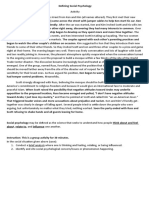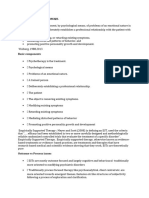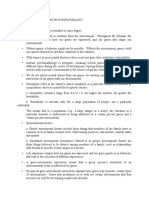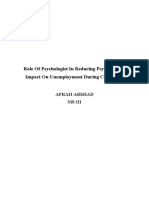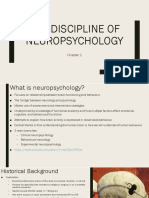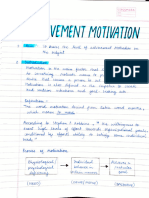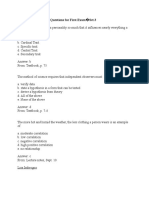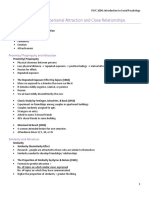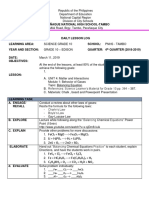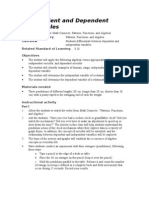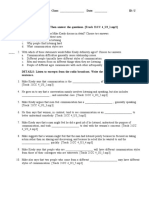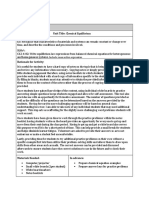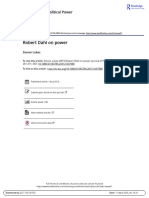0% found this document useful (0 votes)
473 views6 pagesLecture 8 Notes Aggression
This document provides an overview of a lecture on aggression in social psychology. It defines aggression and discusses different types. It then examines several theories of aggression, including instinct/biological theories, evolutionary psychology, and drive theories. It also covers social learning theory and the role of situational factors and individual traits in aggression. The document analyzes gender differences in aggression and discusses prevention and control of aggression.
Uploaded by
Celine SinghCopyright
© © All Rights Reserved
We take content rights seriously. If you suspect this is your content, claim it here.
Available Formats
Download as PDF, TXT or read online on Scribd
0% found this document useful (0 votes)
473 views6 pagesLecture 8 Notes Aggression
This document provides an overview of a lecture on aggression in social psychology. It defines aggression and discusses different types. It then examines several theories of aggression, including instinct/biological theories, evolutionary psychology, and drive theories. It also covers social learning theory and the role of situational factors and individual traits in aggression. The document analyzes gender differences in aggression and discusses prevention and control of aggression.
Uploaded by
Celine SinghCopyright
© © All Rights Reserved
We take content rights seriously. If you suspect this is your content, claim it here.
Available Formats
Download as PDF, TXT or read online on Scribd
/ 6









